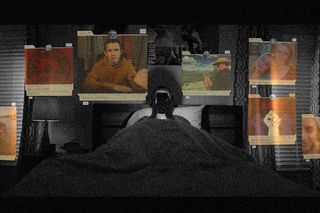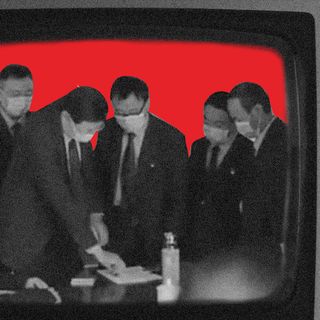
‘The Social Dilemma’ Told Us What We Already Knew. Then Why Was it So Shocking?
The film got industry insiders to tell us we’re lab rats in a huge technological experiment, with no clear purpose or end in sight.

The Social Dilemma, a Netflix docudrama that excoriates social media giants such as Facebook, Twitter and Google for capitalizing on users’ psychology, has ironically become a social media moment in itself. People around the world have taken to social media to lament about how scary and shocking they found the movie, often expressing disbelief at its effect, despite the fact that the enigmatic inner workings of these tech giants have peppered news headlines for years now.
Essentially, The Social Dilemma told us what we already knew — tech giants are using algorithms to profile users, enabling social media addiction and contributing to a vicious cycle of mental health issues, while becoming increasingly inept at fixing the problem they created. Then why did we find it so shocking?
The docudrama put a mirror in front of us, a space that is otherwise almost always occupied by screens. Through ominous music, cringe metaphors, and oft-repetitive, hammer-on-the-head-esque insider information delivered by the very same white men who first built these technologies, The Social Dilemma tells us we’re all lab rats in a ginormous, global and generational social experiment. We know this experiment increases rates of depression, anxiety, and loneliness, especially in teens; we also know it enables a constant feedback loop in which people turn to social media to alleviate these mental health issues, and we know using social media to cope with stress can cause us even more stress.
As Facebook’s former Vice President of Growth, Chamath Palihapitiya, explains in the doc: tech giants figured out how to psychologically manipulate social media users to keep them coming back to the platforms for a dopamine hit. Eventually, we started attributing absolute value to the validation we got on these platforms, conflating it with truth, whereas in reality, it’s simply “fake, brittle popularity.” But the problem is that humans were never evolved to care about what thousands of people thought of us, which led to us — completely unaware — voluntarily entering environments in which we experienced constant, short-term build-ups and crashes, of our egos and senses of self. This, we now know, can cause havoc on not only the mental health of individuals, but also on their self-perception, behavior, and actions in the real world.
Related on The Swaddle:
The Tech Industry’s Sexism, Racism Is Making Artificial Intelligence Less Intelligent
And that’s why it’s so shocking — The Social Dilemma attempts to jolt the viewer out of this rut, constantly stressing that all this algorithmic manipulation is happening at a deep level that goes beyond not just our awareness, but even comprehension. It tries to break through the resignation we feel toward the presence and inundation of social media into our lifestyles, implying there is a choice.
But is there one? Cut to the latest generation that almost completely grew up on social media, graduated into schooling and later professional lives, that considered social media an integral part of the fabric of reality. Now, on top of near-ubiquitous mental health issues, we also see a sort of cognitive dissonance happening — we know social media is bad for us, we know tech giants are using our own psychology against us, but we’ve now grown up in a world that seems incapable of distancing itself from the virtual world, in which we consider social media to be an inalienable part of communication, news, work, and community, in which social media and capitalism have joined hands to irrevocably pervade both personal and professional milieus. Today, social media is largely how the world is ordered, and how an entire generation of people makes sense of it.
Watching The Social Dilemma then becomes an exercise in challenging this conditioning, this cognitive dissonance, this desensitization we’ve lived with for the past few years watching the daily grind of Facebook scandals and Google lawsuits, even as tech ethicists yell into the void for us to start caring about digital privacy.
The Social Dilemma paints it as a generational, big-picture problem that in itself is jarring, but exacerbates the dissonance by failing to give viable solutions that go beyond changing individual lifestyles. What’s most shocking is watching these tech ‘geniuses’ then lament how the machines now have a mind of their own, that those who created them probably don’t know how to fix them anymore, and how it’s probably best for the users to now exercise self-restraint. It’s shocking because now that you’re thoroughly frightened, and presented with an issue that’s apparently worsening every time you pick up your phone, the doc tells you there isn’t really much anybody can do about it.
So, what is the solution here? Is it to make these companies more accountable, have them see the error in their ways, and take responsibility to fix those errors? Arguably, as inferred from the doc itself, we can’t really trust the same people who recklessly built such machines — albeit not out of malice, but ignorance and greed — to suddenly grow a conscience and give up their profit margins. Or is the solution to delete social media altogether and go back to a pre-Facebook world? Looking at the billions of people who order their personal and professional lives on social media, that’s not really a feasible alternative. It’s also a reductive approach that disregards the value of social media, especially when it lends to large-scale protest movements and to the empowerment of marginalized communities online. Or is the solution to delete certain accounts, such as Facebook, Twitter, Google, and Instagram — the only ones the doc included within its ambit? Is it to create and populate social media platforms that are decentralized, surveillance-free, and ethical in design?
The Social Dilemma shocks and frightens, but doesn’t do much else. Maybe it’s this feeling that we carry forward with us to start having the conversations that actually matter.
Rajvi Desai is The Swaddle's Culture Editor. After graduating from NYU as a Journalism and Politics major, she covered breaking news and politics in New York City, and dabbled in design and entertainment journalism. Back in the homeland, she's interested in tackling beauty, sports, politics and human rights in her gender-focused writing, while also co-managing The Swaddle Team's podcast, Respectfully Disagree.
Related


Chinese TV Drama Sparks Debate About the Invisibilization of Women in the Covid19 Fight
